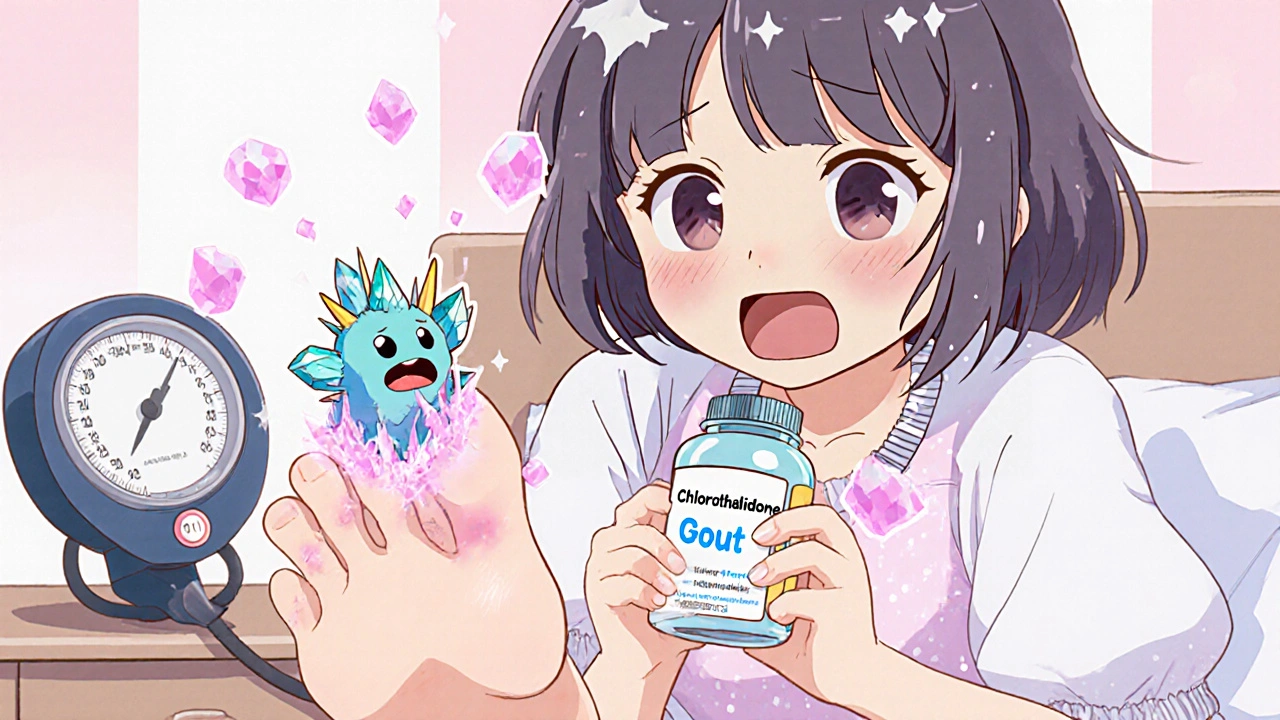Uric Acid: What It Is, Why It Matters, and How It Affects Your Health
When your body breaks down purines—found in certain foods and your own cells—it produces uric acid, a natural waste product that normally passes out through urine. Also known as serum urate, high levels of this compound can lead to painful joint inflammation or kidney problems. Most people don’t think about uric acid until they get hit with sudden, intense joint pain. That’s often the first sign of gout, a form of arthritis caused by uric acid crystals forming in the joints. It doesn’t just affect older men—it can hit anyone, especially those eating lots of red meat, shellfish, or drinking sugary sodas.
High uric acid, called hyperuricemia, the medical term for elevated levels in the blood, doesn’t always cause symptoms. But when it does, it’s not just about pain. Over time, crystals can damage joints, and excess uric acid can form kidney stones, hard deposits that make urination painful and can harm kidney function. Some medications, like diuretics or low-dose aspirin, can raise uric acid levels. So can dehydration, obesity, or even fasting. It’s not just what you eat—it’s how your body handles what you consume.
What’s surprising is that many people with high uric acid never develop gout. But if you’ve had even one flare-up, you’re at higher risk for more. The good news? You don’t need fancy treatments to bring levels down. Cutting back on beer, avoiding high-fructose corn syrup, and drinking more water can make a real difference. Some studies show that cherry juice and low-fat dairy may help too. It’s not about starving yourself—it’s about making smarter choices every day.
You’ll find posts here that dig into how medications like allopurinol work, why some people react differently to the same diet, and how to spot early signs of trouble before it becomes unbearable. There’s also advice on managing uric acid if you’re on other meds—like lithium or diuretics—that can make things worse. Whether you’re trying to prevent your first gout attack or you’re tired of the pain flaring up every few months, the information here is practical, no-nonsense, and focused on what actually works.

 Nov, 18 2025
Nov, 18 2025